Psychedelics have been in the news lately for their potential applications for those suffering from depression. And for good reason. Mushrooms have been used throughout our human history as medicine in rituals and in spiritual ceremonies.
So it's no surprise that modern medicine has its eye on this powerful natural remedy.
In this article, we'll explore the history of magic mushrooms, how they're being used today as a possible treatment for depression, and how you can stay on top of news about this topic.
Let's dive in.
The history of psilocybin for depression
The use of magic mushrooms and the hallucinogenic compounds, like psilocybin and psilocin, have a long history. The use of these mushrooms dates back thousands of years among Spanish, African, and Mesoamerican cultures.
Check out the tiny mushrooms in this drawing below:
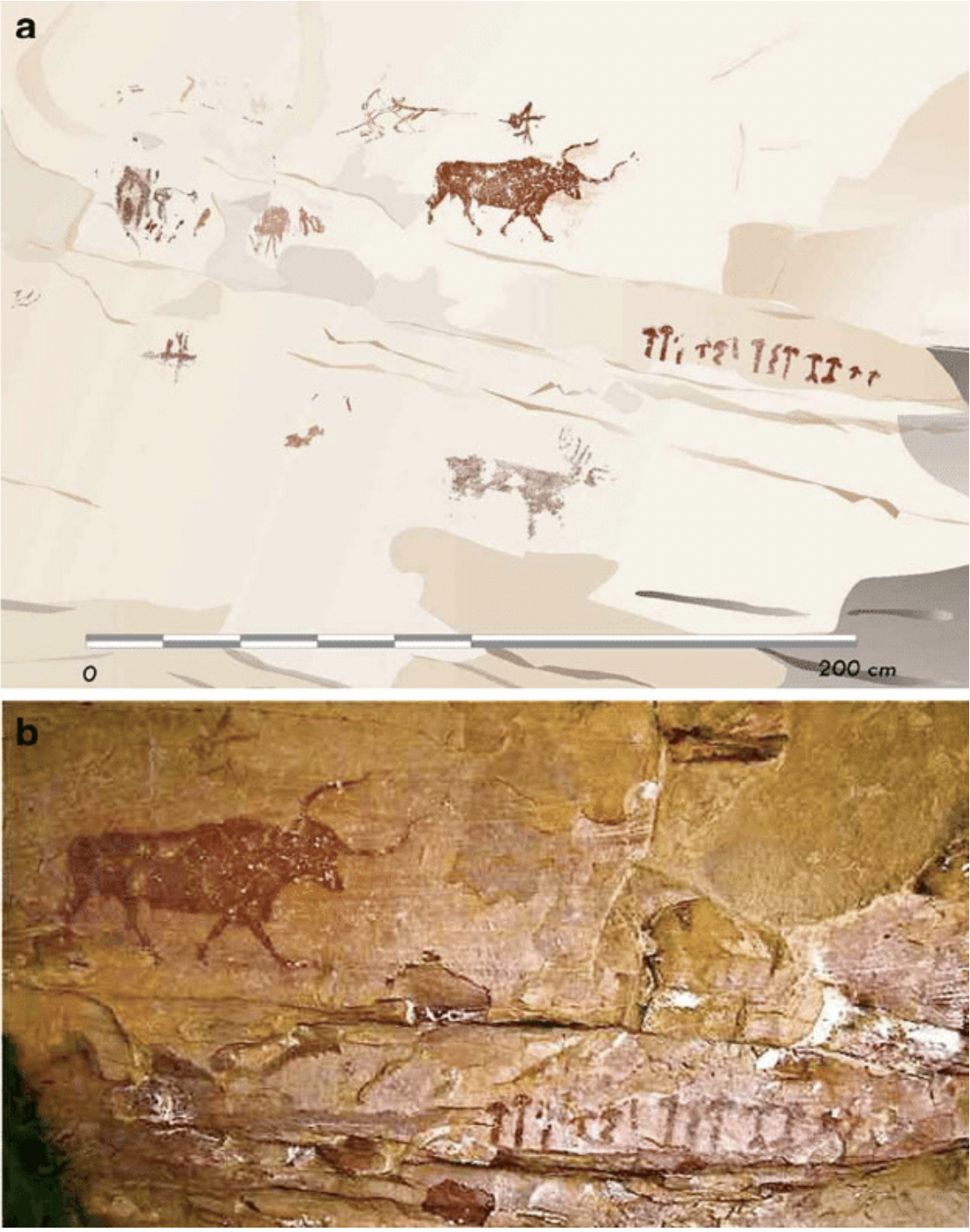
Image Details: The Selva Pascuala mural. ( a ) Whole mural (digital tracing, J. F. Ruiz). ( b ) Detail, bull and mushroom pictographs (photograph, A. Piper).
Psychedelics have long been used in indigenous cultures for spiritual and religious purposes. And their experiences and rituals with these compounds should be recognized as the foundation for their applications today.
The recent wave of research surrounding psychedelic mushrooms didn’t happen overnight. It’s because of its use in indigenous cultures that psychedelics are now being pursued to provide treatment to conditions on a commercial scale.
So much so, that the Food and Drug Administration (FDA) has granted multiple businesses breakthrough therapy designation for psychedelics. Especially for the treatment of major depressive disorder.
In fact, many plants and fungi that are currently used as pharmaceutical drugs were derived from the use in traditional and native therapies.
Why didn't we study psychedelics sooner?
If psychedelics and psilocybin therapy is so powerful, why didn’t this exploration into psilocybin happen sooner?
Well, we have colonization to thank for that. Early Catholic settlers would enter into new territory and force their beliefs on the natives living there. In fact, the Spanish once believed that Aztecs used mushrooms to speak to demons. And by campaigning against the use of psychedelics, many of the cultural traditions using psychedelic plants were suppressed. See Paul Stamet's book for more on the history of psilocybin throughout history.
This is why it wasn’t until 1950 that any mainstream media picked up on its use. Two European American men, Pavlovna Wasson and R. Gordon Wasson, were the first to actively participate in an indigenous mushroom ceremony.
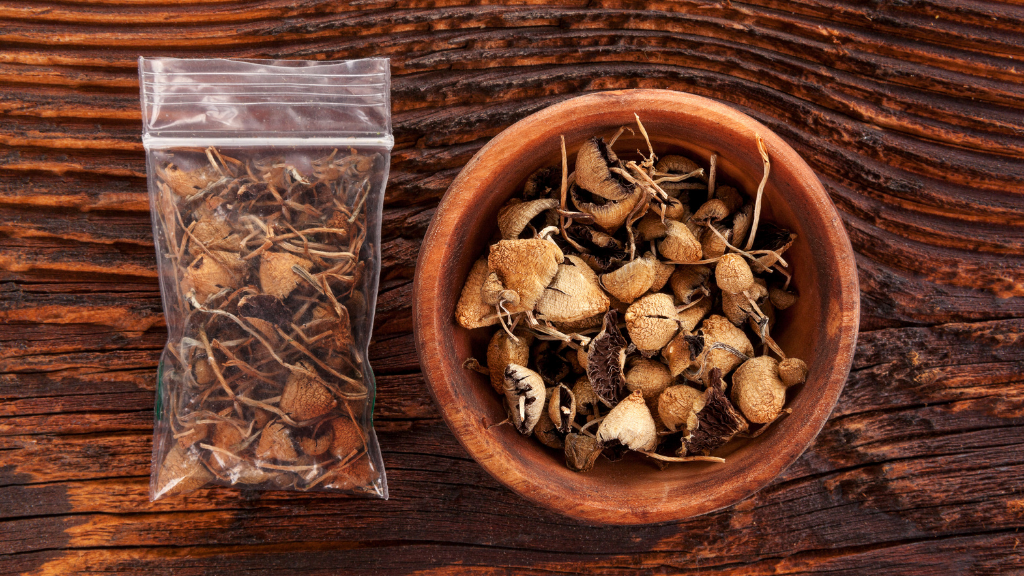
They published articles and over the course of the next two decades, more interest was taken by researchers and the general population in the 1960’s. As many embraced the magic behind 'magic mushrooms' still many more felt threatened by them.
Enter: the drug war.
With little knowledge, regulation, or insight into what these psychedelic mushrooms could do (medically), the US classified all psychedelics as Schedule 1 Drugs. Effectively halting their use and study once again.
Psychedelics and psilocybin research today
For over 30 years, there wasn’t much progression into the medicinal value of psilocybin and magic mushrooms, until 2004 when UCLA and Dr. Charles Grob conducted a study that provided some interesting findings related to the use of psilocybin and its effects on anxiety, depression, and pain in people that have cancer.
It created interest among multiple organizations who decided to expand on this research, like John’s Hopkins, documenting studies on the effects of psilocybin, particularly via an MRI in 2012, to understand the cognitive benefits of use.
In 2018 and 2019, Compass Pathways and the Usona Institute were both granted breakthrough therapy designation to study the use of a psilocybin-based treatment for major depressive disorder (depression).
Which brings us to where we are today.
Using psilocybin for depression
Over 300 million people are affected by depression all over the world. Over the past few years, psilocybin has been most studied for its use with depression. We are still learning and trying to understand why psilocybin works with the brain to reduce depression symptoms.
But we can infer based on brain scans from those who underwent therapy.
"Participants given psilocybin therapy reported a rapid and sustained improvement in their depression, and the scans showed flourishes of neural activity across large swaths of the brain that persisted for the three weeks. That heightened connectivity, they said, resembled the cognitive agility of a healthy brain that, for example, can toggle between a morning bout of melancholia, a stressful day at work and an evening of unencumbered revelry with friends."
Many researchers believe that psilocybin and psychedelic experiences open new neural pathways, improving brain connectivity, and allowing the brain to break harmful depressive patterns. This new connectivity may enable someone who feels 'trapped' in depression to break free.
Comparing psilocybin to traditional pharmaceutical anti-depressant drugs
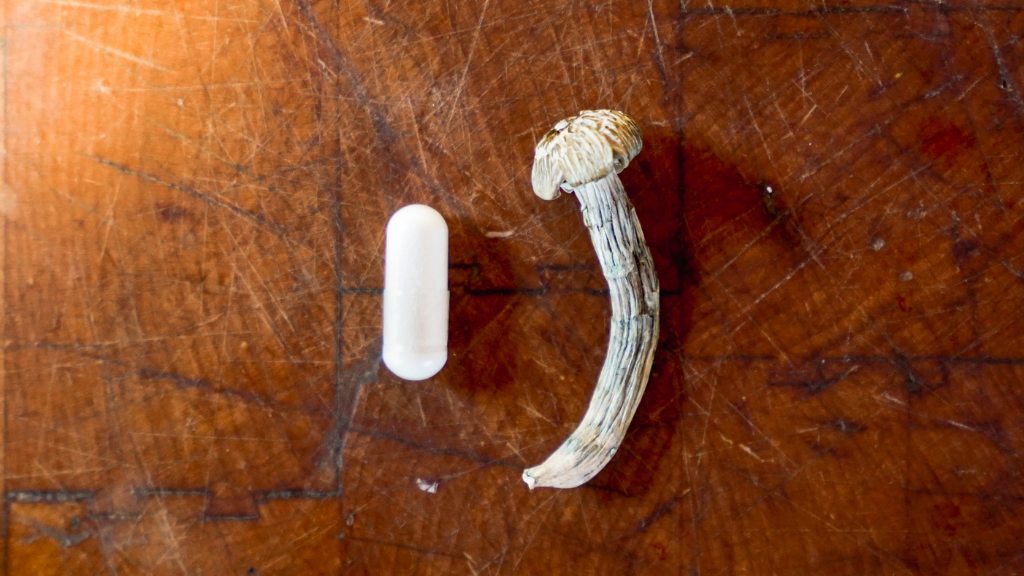
Of course, there are other drugs on the market that may help with depression, like Prozac, Zoloft, Paxil, and Celexa, just to name a few.
However, the effectiveness and adverse side effects are the primary reason that companies and institutions are actively looking into the use of psilocybin as an alternative treatment.
Comparing the side effects of psilocybin treatment to traditional drugs
There are many potential benefits to using psilocybin treatment for depression and anxiety versus pharmaceutical medicine.
The side effects being one of the most prominent.
Side effects of current antidepressants may include, but are not limited to:
- Agitation/Mood changes
- Dizziness
- Headaches
- Insomnia
- Nausea
- Diarrhea
- Low sex drive
- Increased anxiety
- Dry mouth
- Tremors
- Exhaustion
For psilocybin, the most common side effects may include:
- Hallucinations
- Confusion
- Fear
- Headache
- Paranoia
- High Blood Pressure
- Nausea
However, most of these side effects are because of use outside of the medical field, whereas the studies being done on psilocybin are administered by a doctor and/or therapist that is licensed in the field to help guide the patient during a psilocybin therapy treatment.
A study review on the potential therapeutic benefits of psilocybin stated that, “Safety data from these various trials, which involve careful screening, preparation, monitoring, and follow-up, indicate the absence of severe drug-related adverse reactions. Modest drug-related adverse effects at the time of medication administration are readily managed.”
Comparing the time it takes for psilocybin to have an effect versus pharmaceutical drugs
As one commentary points out, traditional medicine can take up to 3-6 weeks to have a significant effect on SSRIs, the part of the brain responsible for reducing depression symptoms.
Obviously, waiting 3-6 weeks to feel an effect can be detrimental to those needing or wanting immediate relief from their depression symptoms.
Psilocybin is able to achieve just that:
"Although SSRIs and psilocybin presumably both work via modulating central nervous serotonin, psilocin, the active hydroxy metabolite of psilocybin, directly activates serotonin receptors, including 5-HT2A receptors located on prefrontal cortical neurons" which essentially results in immediate relief.
Comparing the number of psilocybin treatments required versus traditional drugs
Current antidepressants involve continued - often daily - use and can be extremely costly in the long run.
Most of the recent studies done with psilocybin administered just 1 or 2 doses of psilocybin, accompanied by therapy.
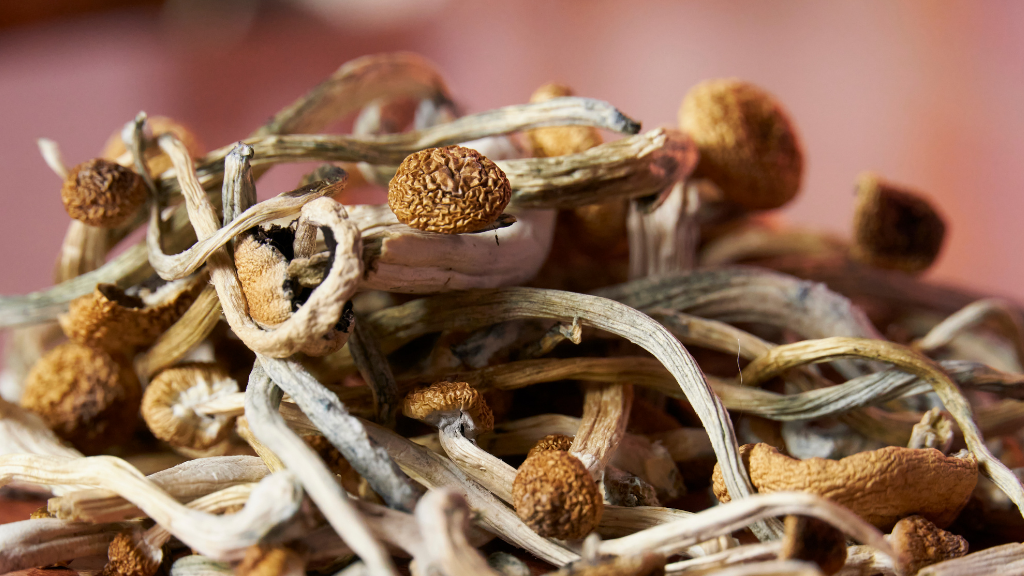
This may change over time as understanding of psilocybin therapy and treatments improve.
But it does seem as though long-term effects can be achieved with relatively small doses. Including one study which showed positive results even 12 weeks after administering therapy.
Important note: Psilocybin research is still very much in its infancy. So while we have some data to inform these sections, more research is certainly required to draw any firm conclusions.
Let's explore these results in more detail:
Psilocybin Studies on Depression
As discussed above, in 2018, Compass Pathways (CMPS) received FDA approval of a “breakthrough therapy” status for a psilocybin treatment they developed treatment-resistant depression.
In 2021, they announced Phase 2b results.
Phase 2b is a study of a pharmaceutical product in human patients to determine efficacy and statistical trends prior to the initiation of Phase 3 pivotal studies.
It was done to provide further evidence into the use of the treatment with the objective to understand the correct dose before a larger, Phase 3 trial.
As reported by Compass Pathways, “233 patients enrolled in the study and were randomised and blinded into three arms comprising 79 patients for each of the 25mg and 1mg doses, and 75 patients for the 10mg dose. Patients were followed up for 12 weeks.”
The company stated in a press release in November of 2021 that the study “shows rapid and sustained response for patients receiving a single dose of COMP360 psilocybin with psychological support.”
It provided the groundwork to move forward with a Phase 3 trial.
But Compass Pathways is not the only company conducting studies on the use of psilocybin for the treatment of depression.
Johns Hopkins Center for Psychedelic and Consciousness Research conducted a study on 27 patients to evaluate the effects of a psilocybin treatment on major depressive order.
The study gave two doses of 20mg and 30mg of psilocybin by capsule with water and reported that, “findings suggest that psilocybin with therapy is efficacious in treating MDD.”
Another trial was conducted on 26 patients and two doses were given of 10mg and 25mg, 7 days apart. It further reported that, “Although limited conclusions can be drawn about treatment efficacy from open-label trials, tolerability was good, effect sizes large and symptom improvements appeared rapidly after just two psilocybin treatment sessions and remained significant 6 months post-treatment in a treatment-resistant cohort. Psilocybin represents a promising paradigm for unresponsive depression that warrants further research in double-blind randomised control trials.”
The use of psilocybin for mental health, including depression, is still in its infancy, but progress is moving forward.
The Usona Institute, like Compass Pathways, also received “breakthrough therapy” status in 2019, and is currently recruiting patients into its Phase 2 trials.
Psilocybin clinical trials for depression
At the time of this article's publishing there are five active clinical trials being done on psilocybin and its potential as a treatment for depression.
There are also eleven recruiting clinical trials that are currently recruiting for the use of psilocybin and depression.
How can I participate in a psilocybin clinical trial?
The best way to enroll in a psilocybin clinical trial is to identify one in your area and apply. If you don't see one, fear not. It seems there are new clinical trials being released every so often. The best thing that you can do is stay up to date with clinical trials that are being done.
It's important to note that clinical trials are successful because they compare psilocybin with a placebo. You do not get to decide whether you receive psilocybin or the placebo.
So there is a chance that even by participating in the trial, you will not receive psilocybin as therapy.
Our goal is to help educate the world on the potential benefits of psilocybin for mental health and other conditions.
By staying up to date on our site, you will see the list of psilocybin clinical trials that are being recruited for. Once you click through the trial, there will be a recruitment link or contact that you can reach out to, assuming you meet the criteria.
They will list this directly on the page. Like this one for example.
It will list the recruitment status, who is conducting it, where its being conducted, the treatment (typically dose and accompanied therapy), as well as the inclusion and exclusion criteria. If you believe that you’re a fit and are interested in participating in a psilocybin clinical trial, reaching out is your first step!
Above all else, continue to educate yourself and remember that clinical trials are all done under medical supervision.
We do not recommend attempting to self-treat depression with psychedelics at home. Psilocybin therapy is administered under the guidance of trained professionals to help you navigate your experience.
Psilocybin is federally illegal in the United States and you may be subject to criminal charges if used in a state where it's illegal.
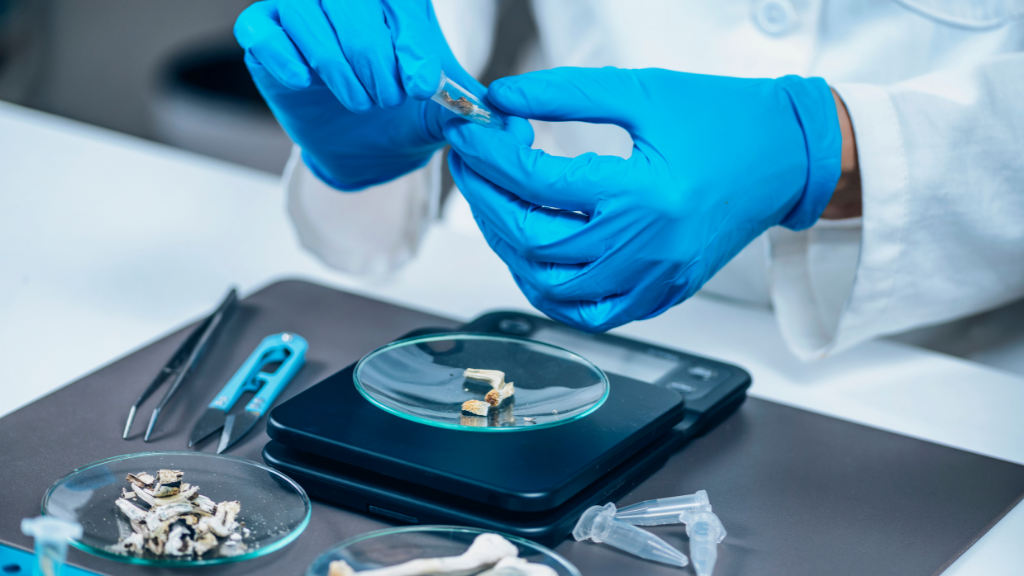
In some states, like Oregon, laws have been passed to decriminalize the compound and make it legal for medical use only.
Things are changing fast. You can also stay up to date and subscribe to our state-by-state legislation database here.
The future of psilocybin lies in the ability for companies and institutions to prove its use for medical conditions, and so far, enormous strides have been made. Especially for those struggling with depression and major depressive disorder.
Most of the treatments using psilocybin for depression are done with assisted therapy to not only help support the patient during their session, but to further dive into the “journey” they went on during that session and discuss the meaning to allow the patient to further reflect on their experience.
You can learn more about how psilocybin therapy works here.
This combination of therapy and psilocybin is already proving to be a potential for depression and we are eager to report on anything new that arises from this continued research. We’ll always keep you up to date!
Did you know that medicinal mushrooms (non-psychedelic) may support depression treatment? Head on over to our lion's mane for depression guide to learn more.

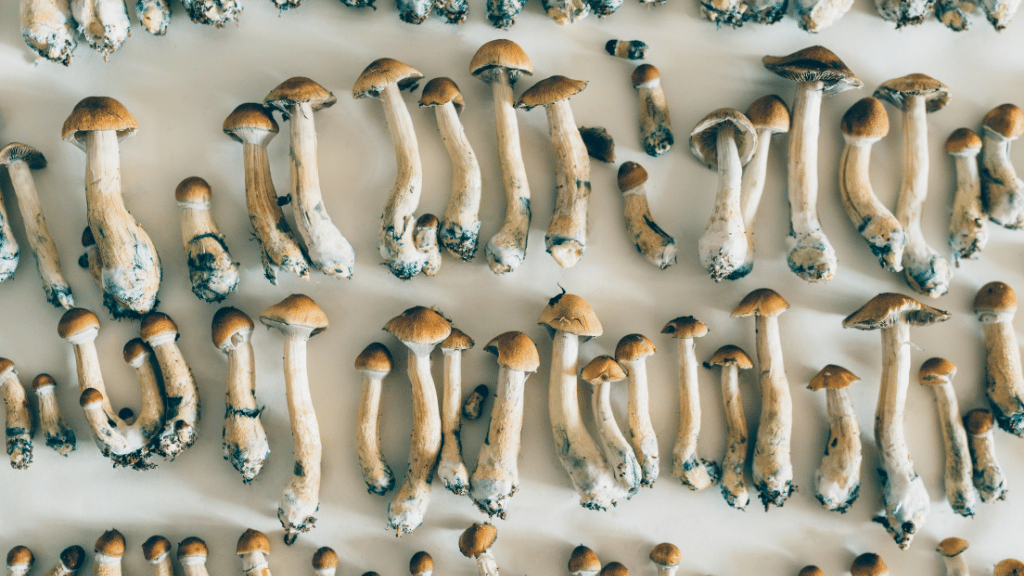
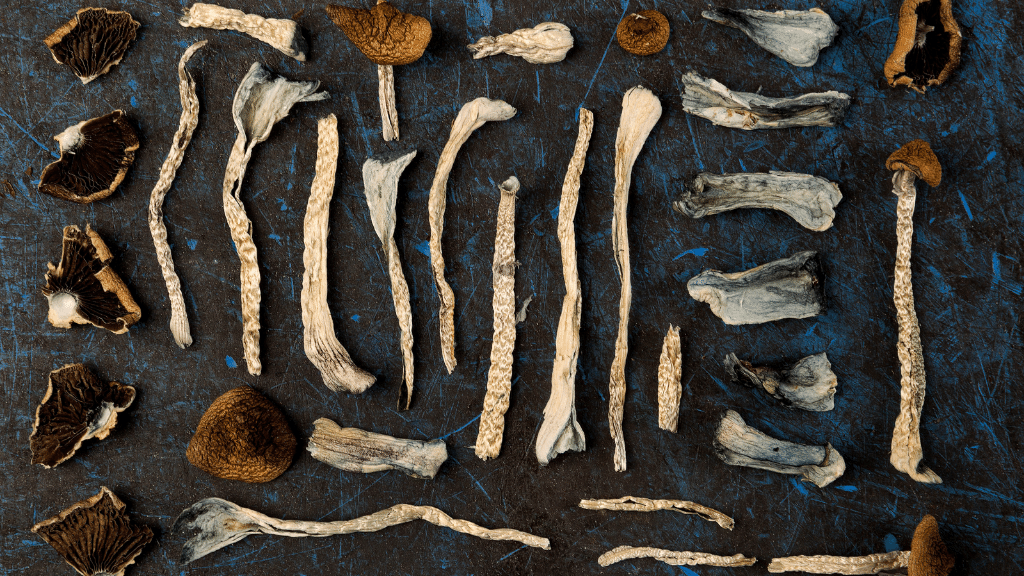


.png)
